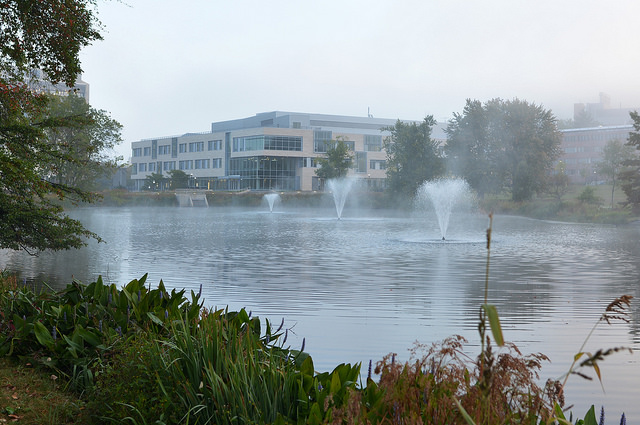Girls Involved in Robotics Learning Stimulations, a new project aimed at interesting middle school girls in computer sciences, will be launched by two Massachusetts professors.
The project will be headed by Dr. Florence R. Sullivan, a professor of the College of Education at the University of Massachusetts and Dr. Beryl Hoffman, an associate professor of computer information technology at Elms College. This project will start in either the winter or spring of 2020 and is expected that between 40-60 girls to attend its program.
The GIRLS project will provide the girls with opportunities to develop solutions to problems created by natural disasters, using co-robotics.
Sullivan, who has been researching student learning with robotics for 15 years, talked about their strategy.
“We plan to create engaging material that focuses on how computer science and robotics innovations can be used to help other people,” Sullivan said. “This is a different focus then on the more traditional problems solving approach.”
The project will focus on creating a hurricane simulation, Sullivan explained, saying that “it is the most relevant to our participants.” Since the 1960s, Holyoke has been continuously welcoming migrants from Puerto Rico. Last year, Hurricane Maria killed and injured many residents of Puerto Rico.
Her research has encouraged participants to learn and understand collaborative thinking with computational media.
“We want girls to see themselves as capable of excellence in the field of technology and to be interested in pursuing a technological career,” she said. “We believe exposing girls at a young age and emphasizing the many helpful uses of technology may serve to interest more girls in a technology career pathway.”
Alicia Gonzales, a graduate assistant in the office of research and engagement in the college of education, said the project “will have a great benefit to not only students in Western Massachusetts but beyond, given that the team plans to share their research findings and curriculum materials.”
“I hope that the students who participate in the project have meaningful learning opportunities and are possibly able to open their minds to ideas or projects they may not have thought of before,” Gonzales said. “In addition, I hope this project helps to educate young people on larger issues such as climate change, how technology is not a politically free enterprise or that they are able to explore their own interests.”
“I think gender equality in the classroom is crucial for all scientific disciplines. I would consider the support women receive from other women an advantage to being a woman in science,” Karisma Pathak, a junior biochemistry and molecular biology major, said. “I am grateful for the opportunity I have had to work with other amazing women and to be taught by phenomenal female professors.”
After the first program, the researchers are planning to hold a summer program that will attract not only female students but also male students. The results of this project will be posted online.
Yurika Yamazaki can be reached at [email protected].




















